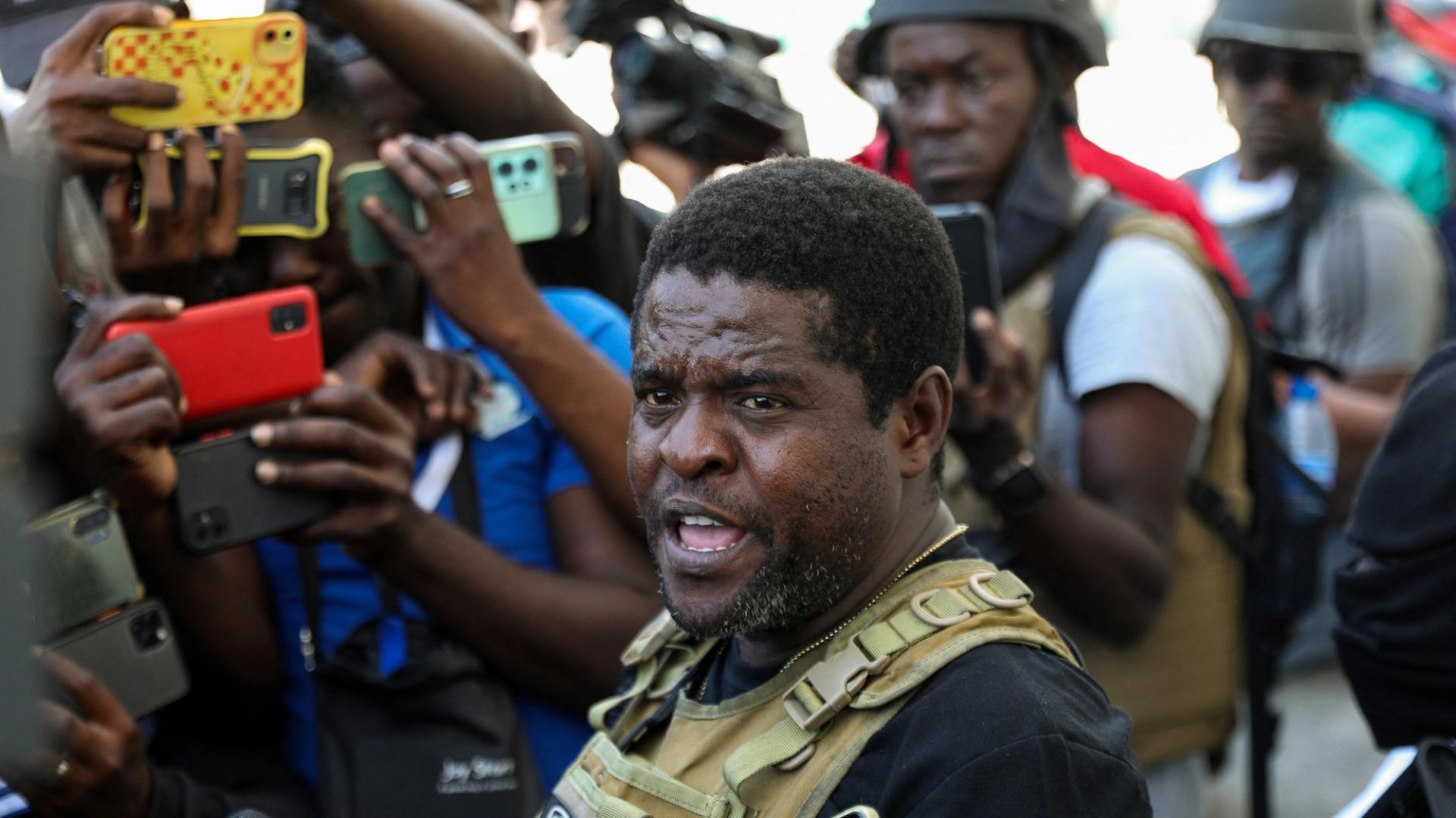The News
Haiti gang leader Jimmy ‘Barbecue’ Chérizier has warned of a ‘civil war that will lead to a genocide’ if Prime Minister Ariel Henry does not step down, amid a wave of gang violence that has plunged the country into crisis.
The de facto prime minister is facing increasing pressure to expedite a transitional government after an explosion of violence that has displaced more than 15,000 in recent weeks.
Violence flared when Henry left the country for Kenya to finalize a deal for a United Nations-backed police force to help combat the gangs. Gunmen stormed prisons, releasing 4,700 inmates, laid siege to key areas of the capital, Port-au-Prince, and shot at airplanes, leading international carriers to halt their flights.
Chérizier, a former elite police officer and one of Haiti’s most powerful gang leaders, has said his group is seeking to capture the police chief and government ministers, the Associated Press reported.
The United States on Wednesday urged Henry to “expedite” the violence-ravaged nation’s transition to a new governing structure and hold “free and fair” elections – but stopped short of calling for his resignation.
The 74-year-old former neurosurgeon has been the acting prime minister since the assassination of President Jovenel Möise in 2021. Henry backtracked on a promise to step down in February, instead saying he would hold general elections in 2025 after stabilizing Haiti’s security situation.
SIGNALS
Gangs could become dominant power in the latest in a series of coups
“The situation is on the verge of a real collapse of any and every institution that remains in the country,” one Haiti scholar told NPR, after gangs formed an alliance to overthrow the government. More than 80% of the capital is currently controlled by gangs, according to the United Nations. Haiti is not unfamiliar with coups; throughout its recent history, gangs and armed groups have repeatedly played the role of political opposition.
Chérizier’s unification of a criminal federation of gangs known as The G9 Families and Allies has also been aided by high-caliber weapons smuggled in from the United States. “Present-day gangs enjoy a much higher degree of military capacity than those a decade ago,” a report from the Global Initiative against Transnational Organized Crime stated.
Gangs exploit rampant poverty in a country plagued by political instability and natural disasters
While most people in the capital Port-au-Prince loathe the armed gangs that control the city, others support them “even if they are terrified that they themselves or their families could be collateral damage” because they “feel the gangs are the only group capable of forcing Henry out,” an ABC News correspondent wrote. More than half of the former French colony’s citizens live below the poverty line and have been buffeted by ongoing political instability and a series of natural disasters in recent years, including the devastating 2010 earthquake. “The confluence of these forces has transformed what was once the wealthiest colony in the Americas into the poorest country in the Western Hemisphere,” the Council on Foreign Relations said.
Prime minister’s plan to add security forces faces an uphill battle
Part of the growing discontent in Haiti is that Henry has been solely focused on finding a military solution to gang violence, Monique Clesca, a Haitian activist, told NPR. Ordering a state of emergency at the beginning of his government would have allowed police to rein in the gangs, and plan for elections at the same time, she said. Instead, Henry requested troops from the United Nations “then crossed his arms,” she said. Meanwhile, an agreement with Kenya to deploy a U.N.-backed multinational police force has been met with judicial hurdles and been slow to implement.

